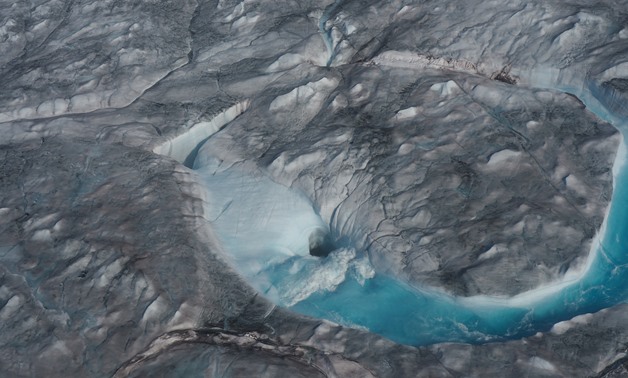
A view of ice melting during a heatwave in Kangerlussuaq, Greenland is seen in this August 1, 2019 image obtained via social media- Reuters.
CAIRO – 5 August 2019: For the second time this summer, Greenland, the world’s largest island, lost much of its ice sheet due to the increasing heat wave.
Around 12 million tons of ice melt as the temperature hits 22°C degrees on August 1, to record the second melting wave for the in second month in a row as the first episode of ice melting occurred on July 11-20.
The excessive high wave reached Greenland after it hit European countries like the United Kingdom, Germany and Belgium with an unprecedented increase for decades.
If a no-action policy is kept adopted by world leaders who participate in continuing CO2 emissions, the sea level could increase from 19 to 62 inches due to ongoing melting ice sheets of Greenland, according to a study published by Science Advances.
The temperature of the globe increased by 0.85 °C degrees in the period between 1880 and 2012, raising the sea level by 19 cm and is expected to increase to 24 and 30 cm by 2065, according to the United Nations.
According to the latest data by World Meteorological Organization on August 1, July 2019 could be the hottest month ever, surpassing 2016 July record, adding that the last four years recorded the hottest on record.
“The extraordinary heat was accompanied by dramatic ice melt in Greenland, in the Arctic and on European glaciers. Unprecedented wildfires raged in the Arctic for the second consecutive month, devastating once pristine forests which used to absorb carbon dioxide and instead turning them into fiery sources of greenhouse gases. This is not science fiction. It is the reality of climate change. It is happening now and it will worsen in the future without urgent climate action,” said WMO Secretary-General Petteri Taalas.

Comments
Leave a Comment